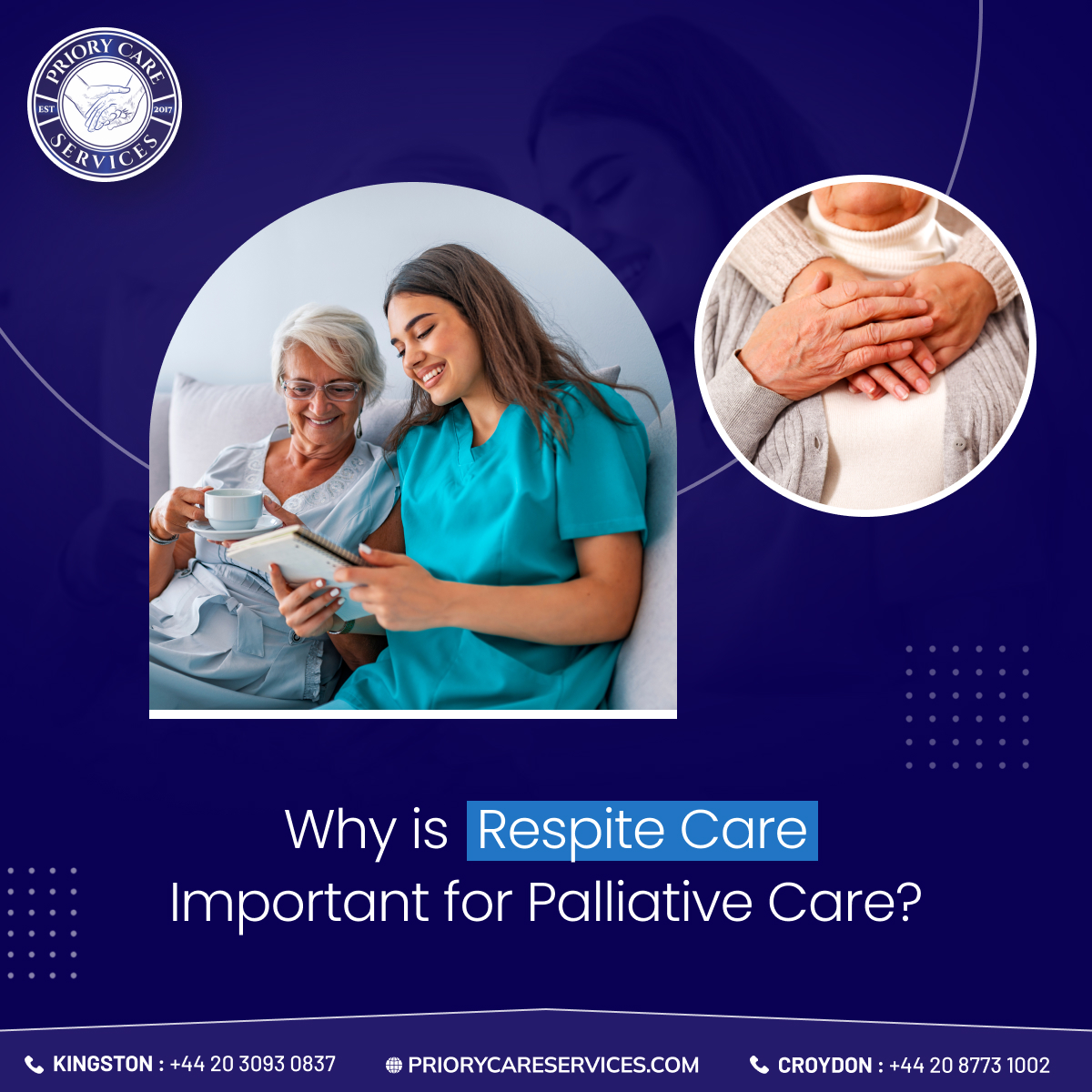Hospice and palliative care are specialised services for people who are nearing the end of their lives or who are diagnosed with terminal diseases. These services provide essential respite care for the families and primary carers who play a crucial role in the care process. They also concentrate on providing the patient with emotional support and pain relief.
If you have elderly patients in your family who need compassionate, high-quality care, there are several respite care services in Croydon, Bromley, and Kingston Upon Thames. However, to know why they are important, read on.
What is Respite Care?
Respite care refers to the short-term provision of care by trained personnel to the main caregivers. So as to give them a break from the hectic and continuous care of a loved one. As such, it can take several forms, such as in home care, residential care settings, or hospice. Respite programs primarily exist as a means of support to families who are in palliative and hospice care and who require time-off caregiving duties. This lets them take a break, refresh, and cater for their own needs.
Why Respite Care Matters in Palliative and Hospice Care
1. Preventing Caregiver Burnout
Specifically, in the care of elderly relatives who have life-threatening or fatal conditions, the carer may consider it pretty cognitively, emotionally, and physically taxing. This main attention, on the other hand, can lead to carer burnout due to the attention expected from the carer towards the patient. Respite care will hence be of significant help in giving the carers a much-needed break to get their energies back and head out to duties with more energy and focus.
2. Ensuring Continued High-Quality Care
If the main carer is tired and constantly keeps working, they may gradually be unable to provide the best quality of care. Fatigue and emotional weariness can affect patience and judgement abilities, making them unable to meet the needs of their family members. Respite care ensures that carers receive the rest they require while experienced caregivers step in to continue providing compassionate, expert care. This ensures that the patient receives regular attention and care even when the primary carer is absent.
3. Improving Caregiver Mental and Emotional Health
Taking care of an elderly, terminally ill family member also takes a huge emotional toll on the primary carer. Feelings of loneliness, frustration, despair, and grief are common among carers, particularly if they are their family or close acquaintances. In addition to providing a physical break, respite care also sees that everyone gets emotional support.
Similarly, top respite care services in Kingston Upon Thames, Croydon, and Bromley also make sure that both primary carers and patients are taken care of. Without the burdensome demands of caring duties, carers can take time to process their emotions, take care of their mental health, and look for emotional support.
4. Allowing Caregivers Time for Personal Needs
Main carers are also likely to sacrifice their own health and well-being in order to spend their time and energy caring for their ailing family members. It may not be intentional but can be impulsive, and if not taken care of, they can get ill too. Respite care allows carers to focus on their own personal needs and health. Such as caring for their own health, resting, spending time with other family members, or simply engaging in enjoyable activities. This balance is critical for long-term well-being and allows carers to continue giving care without jeopardising their own health and mental well-being.
5. Strengthening Family Dynamics
The whole family is usually involved in palliative and hospice care, and caregiving duties are usually divided. Relationships may be strained, nevertheless, by the duties and stress of caregiving. Also, considering the fact of getting overly attached to the elderly patient, things can be more complicated. Respite care gives carers a chance to spend time with their family, friends, and colleagues that they do not meet with often. Although it also gives other family members a chance to jump in and assist, it is best to avoid letting non-skilled family members take over. This can keep the family ties stronger and guarantee that providing care is a supportive, shared experience.
Conclusion
Respite care is an essential provision in palliative and hospice care, benefiting both patients and carers. Respite care prevents burnout, guarantees high-quality care, and enhances carers’ overall emotional and mental health to manage the arduous road of end-of-life care. This allows families to continue providing love and support while also caring for themselves.
If you are looking for reputed and trusted respite care services in Croydon, Bromley, and Kingston Upon Thames, you can get in touch with Priory Care Services. You might want to know how our caregivers take care of your aged, terminally ill family members. So connect with us to know how we can take care of them for you!




